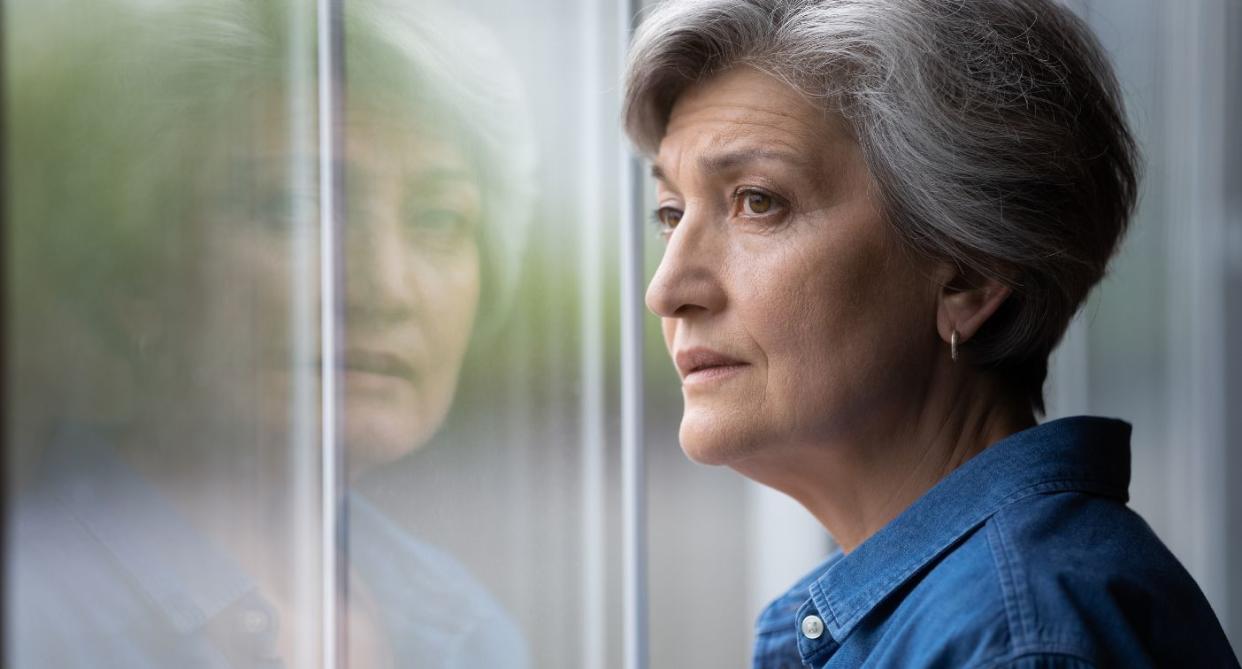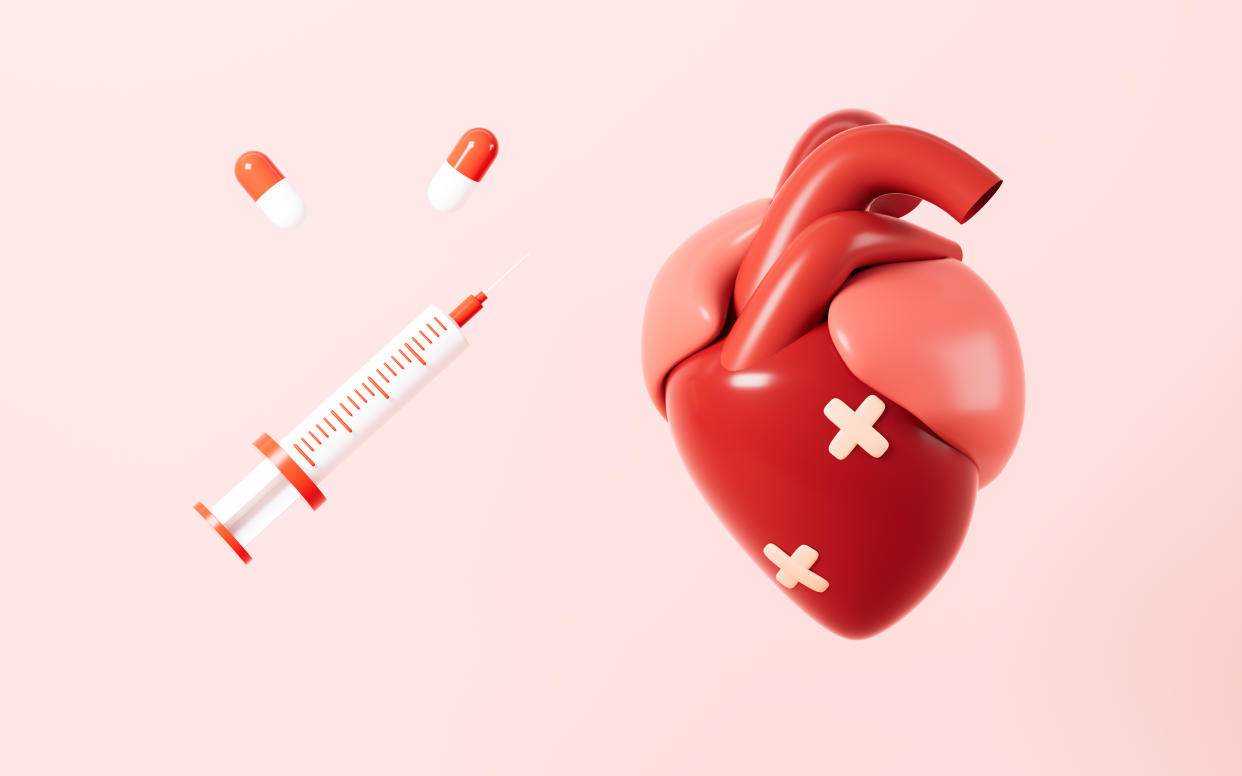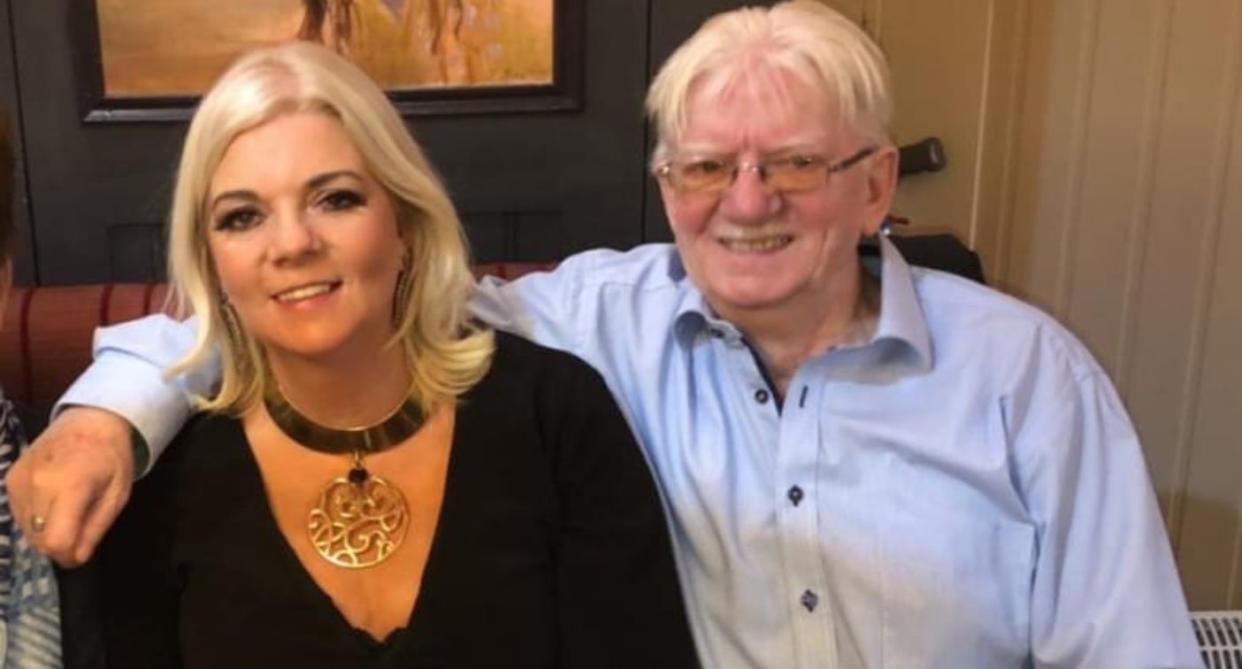Why people with broken heart syndrome are failed by current treatment

Broken heart syndrome, or Takotsubo as it's called officially, is a real condition. Whether you've had a breakup, lost someone you love, or experienced any extremely upsetting or stressful event, it could affect you.
And now, in a first-of-its-kind study funded by the British Heart Foundation, researchers have found the treatments given to those diagnosed, worryingly don't protect patients.
Broken heart syndrome patients are prescribed the same medication as heart attack patients, the University of Aberdeen Cardiology and Cardiovascular Research Unit unearthed when analysing data from 3,720 people over a decade. But while the researchers say this approach worked for those who endured a heart attack, it did not improve the survival rate of those with Takotsubo.
Participants with broken heart syndrome were more likely to die than the general population, were just as vulnerable to dying as patients who had suffered a 'true' heart attack, and had an increased vulnerability to developing heart conditions.
So, here's everything you need to know about the "devastating illness", from the experts and a survivor who developed it after a big loss.
What is broken heart syndrome?

"Takotsubo cardiomyopathy can be triggered by extreme emotional distress, leading to its nickname of broken heart syndrome," explains Professor Dana Dawson, who led the new research.
"It happens as a reaction to upsetting events such as the death of a family member, the ending of a relationship or illness, when distress signals travel from the brain to the heart. But understanding is growing and there is evidence that it can be caused by other factors, including physical trauma or no incident at all.
"Takotsubo cardiomyopathy happens when one of the heart’s chambers, the left ventricle, suddenly balloons and weakens. The heart then can’t pump blood around the body as before and the extra stress leads to heart failure. It can develop at any age, and typically affects more women than men."
Symptoms can appear like a heart attack, including shortness of breath and chest pain.
"But Takotsubo cardiomyopathy is a different condition entirely and unlike a heart attack, patients don’t suffer from a blockage of the arteries that supply the heart with blood," Professor Dawson adds.
The condition is usually diagnosed when the heart muscle is found to be weakened, the cause isn't a heart attack, the heart has the typical 'Takotsubo shape' and when other conditions that could explain symptoms are ruled-out, according to Cardiomyopathy UK.
Current treatment for broken heart syndrome
"We were surprised to see that when compared to patients with 'classical heart attacks' – they were medicated in the same way," says Professor Dawson of the study. "We looked at 10 different categories of medicines and they were prescribed at the same rate – this was true for both typical heart medications and non-cardiovascular medications like HRT and anti-inflammatory medications."
The team were able to look at follow up prescriptions over a prolonged period of time with trusted accuracy using the Public Health Scotland database. "Our data shows quite starkly that we are not treating this condition correctly."
Watch: Broken heart syndrome on the rise in women
Future of treatment for broken heart syndrome
"It is vital that we identify precise ways to treat this unique group of people, and that is what we plan to do as we continue our research," says Professor Dawson.
"This study has identified one drug as a potential breakthrough with promising therapeutic benefit, however, further research is needed to establish if this is the key to treating this devastating illness."
The good news is, according to the NHS, it is temporary and reversible.
To help with stress, the health service typically recommends talking to a friend, family member or health professional, or using calming techniques, among other things. When asked whether talking therapy could be something that could help with Takotsubo, to help address/heal the emotional distress and therefore reduce physical symptoms, Dawson responded, "The studies to test any therapy in this condition need to be done in order to address the complete lack of guidelines or even expert consensus on how to treat this disease."
"More research into Takotsubo could better reveal its causes and which treatments could save and improve lives," adds Dr Sonya Babu-Narayan, associate medical director at the British Heart Foundation.
'I had broken heart syndrome after my Dad died'

Michelle Canning was diagnosed with a Takotsubo cardiomyopathy in January 2021, following the death of her father the previous year.
Canning, 49 at the time, experienced pains in her chest and arm on her way to a routine doctor's appointment one morning. Initially, she dismissed it as just indigestion but when she told her GP about it upon arrival, they conducted an ECG test (a simple test to check the heart).
The mum-of-three, who was then vegan, doesn't smoke, doesn't regularly drink alcohol, and at the time exercised multiple times a week, was admitted to hospital with a suspected heart attack.
But an angiogram revealed that Canning's arteries were clear and there was no coronary damage to her heart. Instead, she was diagnosed with Takotsubo. With this thought to be triggered by stressful events, she was told her condition was most likely a result of the sudden death of her dad Tommy three months earlier.
"I'm a very easy going being, I don't get very stressed and I'm not very dramatic - I take things in my stride. So this was a shock to know that I had developed this condition as a result of stress," says the former journalist who went onto a career in crisis communications and describes herself as emotionally resilient.
"None of it made sense but the reality is that stress was manifesting itself physically when I did not feel stressed and that's frightening."
While Canning credits her GP and the hospital staff for amazing care, she didn't gain much understanding of what had happened and has been on "a real journey of exploration" since.

"Broken heart syndrome is probably one of the most neglected areas of cardiology. And I don’t think it's any surprise that this is a condition that mostly affects women. It is difficult to try and manage a condition when there isn’t enough known about it and yet there are many triggers," she says.
"It's a lonely journey because there aren't many people like you. I'm lucky I had the agency to go find organisations for further information [including the British Heart Foundation]."
Canning believes patients need to be better informed about Takotsubo, given a plan for recovery and the people to contact – all tailored to the condition.
"Fortunately, the condition is reversible and I am now recovered. However, there is a chance of a recurrence [though the NHS points out it is unusual for it to happen again]. All I can do is try to manage stress, but then I am stressed by the fact I've had this rare condition and it could happen again," she says.
"Everything I do from here on in will be shaped by my experience in a way I couldn't have possibly known about, but I'm blessed and very lucky that there appears to be no damage and that I am alive and well. Others have not been as fortunate.
"I have the opportunity to celebrate and enjoy life every day. The further away I am from the actual episode, the more fear subsides, but I want to share my experience in the hope it helps others get the right treatment and care."
You can call the British Heart Foundation's helpline on 0808 802 1234 or chat with a cardiac nurse online, both open weekdays 9am-5pm (excluding bank holidays), or email hearthelpline@bhf.org.uk.
If you experience any symptoms of chest pain and breathlessness, always call 999.
Read more: As a 35-year-old gay man, I got my heart broken like a lovesick teenager (Yahoo Life UK, 4-mi read)
Read more: Grandmother’s holiday ‘indigestion’ turned out to be heart attack sign (Yahoo Life UK, 4-min read)
Read more: Cardiac arrest signs for men and women as study finds symptoms can appear 24 hours before (Yahoo Life UK, 4-min read)


